Iran Says Foreign Nationals Behind Attack On Shia Shrine
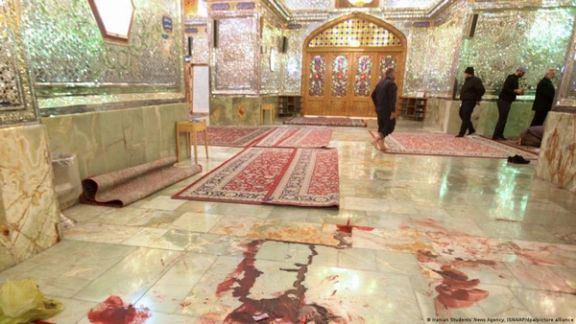
Iran’s intelligence ministry has announced the arrest of 26 people including foreigners on charges related to an attack on a Shia shrine October 26 that killed 15 people.

Iran’s intelligence ministry has announced the arrest of 26 people including foreigners on charges related to an attack on a Shia shrine October 26 that killed 15 people.
The ministry said in a statement on Monday, that these people were detained in different provinces as well as “at the eastern borders while fleeing the country.”
The ministry identified the assailant in Shahcheragh shrine as a Tajik citizen named Sobhan Komrooni with the nickname “Abu Aisha” and an Afghan person named Mohammed Ramez Rashidi as the “supporting element” of the operation.
Earlier, Esmail Mohebi, a top official at Fars governorate, announced the death of “the perpetrator of the attack on the shrine” who was injured and hospitalized in southern city of Shiraz.
In the statement, a citizen of the Republic of Azerbaijan was named as the “main element of directing and coordinating” the attack, who “flew from Heydar Aliyev International Airport in Baku and entered the country through Tehran’s Imam Khomeini Airport.”
“After arriving in Tehran, this person announced his presence to the coordinating element in the Republic of Azerbaijan and immediately contacted the network of foreign nationals of the ISIS to inform them about his presence in Tehran,” reads the statement.
The allegations by Iran cannot be confirmed by any independent source and the Republic of Azerbaijan has yet to react to the claim.
ISIS took responsibility for the attack on the Shahcheragh in Shiraz on October 26, but some questioned the Islamic Republic’s account saying it was staged by the regime itself to distract attention from nationwide protests.
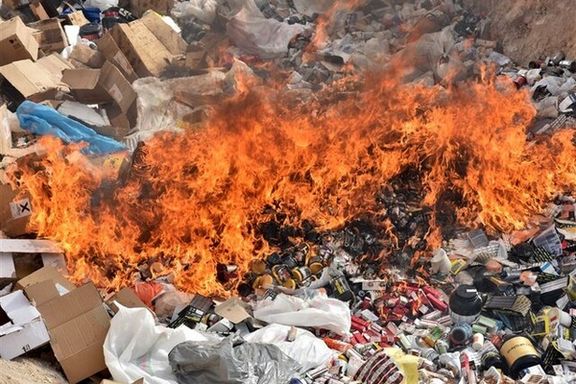
The Islamic Republic’s authorities have destroyed large amounts of imported medical products without undergoing legal procedures despite dire shortages across Iran.
While there are numerous reports about shortages of medicines and medical products, including basic drugs and IV fluids in recent months, the country’s health ministry has destroyed a huge amount of the imported supplies without the required examination by relevant organizations, said Saheb Hojjati, the head of the Iranian organization in charge of confiscated goods.
Large amounts of IV fluids were destroyed earlier this year while the country was suffering from severe shortages, he underlined.
Hojjati added that according to law, the Health Ministry and the Standards Organization must test the drugs and their expiration dates to see if they are safe to be used and announce the results in written documents to the Organization for Collection and Sale of State-owned Properties of Iran (OCSSPI), but this procedure is not being followed at the moment. The OCSSPI is affiliated to the Ministry of Economic Affairs and Finance, with its main purpose being the collection, storage, management and sale of properties that by law are under the ownership, possession, custody or management of the government.
Hojjati added that if the process is accelerated, the OCSSPI can sell the products in the market to the highest bidders. “This is while we are in an economic war situation and all organizations and institutions should help the government and people,” he noted.
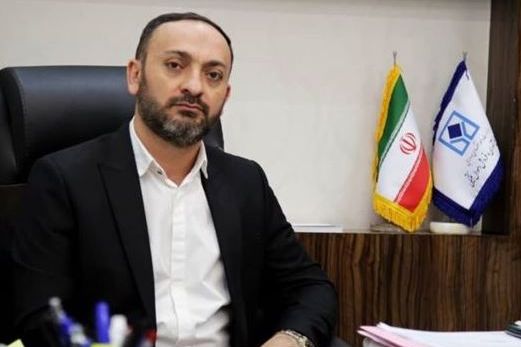
According to Hojjati, over 7.8 trillion rials (about $26 million) worth of products, including basic medical and food items such as vegetable oil, sugar and rice, have been destroyed in the last seven months. The Islamic Republic has been claiming that United States sanctions prevent procurement of medicines, while Washington insists that humanitarian aid is exempt from sanctions. Iran has been importing more than $1.5 billion of medicines a year.
The Islamic Republic has been claiming that United States sanctions prevent procurement of medicines, while Washington insists that humanitarian aid is exempt from sanctions. Iran has been importing more than $1.5 billion of medicines a year.
Considering the incessant bemoaning by the Islamic Republic’s officials about the effect of US sanctions on shortages of medicine in the country, not only does the move seem the result of a cumbersome bureaucratic process, but it also strengthens speculations that the government is pleased with psychological effects of the shortages on foreign audiences.
However, as per the US sanctions, the Islamic Republic is legally allowed to import medicine, agricultural commodities, and medical products. According to a mandate by the US Department of Treasury, it is not necessary to acquire any permit for selling agricultural commodities, medicine, and medical devices to Iranian buyers.
In September, an Iranian lawmaker warned about the failure of the government’s Medicine Assistance Plan to make prices affordable amid high inflation and rising poverty. “Patients, particularly those with rare diseases, have been facing problems since the removal of medicine import subsidies,” Mohammad-Taghi Naghdali, a member of the parliament's judicial and legal committee, said, adding that lawmakers have warned that without allocation of cheap foreign currency to pharmaceutical imports the government's Medicine Assistance Plan is bound to fail.
President Ebrahim Raisi announced in early May that his government had begun the process of removing up to $15 billion import subsidies for basic foods, medicine, and animal feed despite warnings of more inflation and hardship. Raisi also said the government would be paying cash assistance to most Iranians as compensation.
The removal of import subsidies meant that manufacturers would no longer receive cheap dollars from the government to import raw materials to produce medicine.
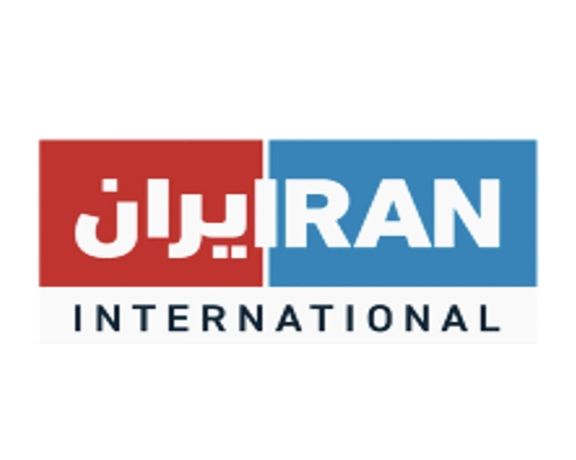
Below is a corporate statement by Volant media published in full.
Statement released 07/11/2022, 11:00 GMT
“Iran International, the independent UK-based Farsi-language news channel is shocked and deeply concerned by the credible threats to life its journalists have received from the IRGC.
Two of our British-Iranian journalists have, in recent days, been notified of an increase in the threats to them. The Metropolitan Police have now formally notified both journalists that these threats represent an imminent, credible and significant risk to their lives and those of their families. Other members of our staff have also been informed directly by the Metropolitan Police of separate threats.
Our journalists are subject to abuse 24/7 on social media. But these threats to life of British-Iranian journalists working in the UK marks a significant and dangerous escalation of a state-sponsored campaign to intimidate Iranian journalists working abroad. These lethal threats to British citizens on British soil come after several weeks of warnings from the IRGC and Iranian government about the work of a free and uncensored Farsi-language media working in London.
Britain is the home of free speech. Iran International stands as part of that tradition, proud to serve the 85m people of Iran with independent, uncensored information. The Islamic Republic of Iran, and specifically the IRGC cannot be allowed to export their pernicious media crackdown to the UK. The IRGC cannot be allowed to act abroad with impunity.
We hope that the UK Government, international governments and other organisations will join us in condemning these horrific threats and continue to highlight the importance of media freedom.
We would like to thank the Metropolitan Police for their considerable efforts in keeping journalists safe.”
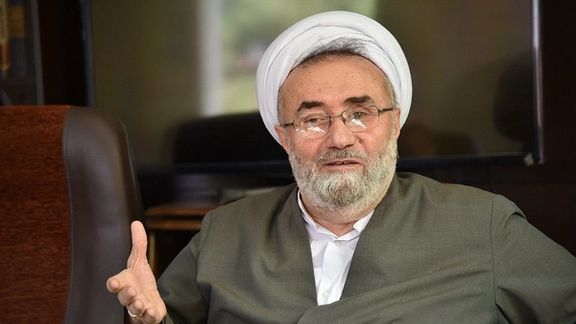
The well-known conservative editor of a government newspaper in Iran has asked the government why it did not ban Russia from using Iranian drones against Ukraine.
Massih Mohajeri, the editor of Jomhouri Eslami (Islamic Republic) newspaper said on Monday “the fact that you have changed your stance from denying the delivery of drones to Russia to admitting that we gave drones to Russia before the Ukraine war should be taken as a good sign.” But now the government must also admit that it failed to stop Moscow from using the drones in its war on Ukraine, he said.
Iran’s Foreign Minister Hossein Amir-Abdollahian said Saturday Tehran provided Moscow with a limited number of drones months before the war in Ukraine, but if it is proven that Russia has used them in the war against Ukraine, the Islamic Republic will not be indifferent to it.
Slamming regime’s approach to the war in Ukraine he also stated, “The minimum thing the authorities of the Islamic Republic of Iran could have done in the war in Ukraine was to first negotiate with both sides of the war by forming a mediation committee and encourage them to stop the war.”
He further wrote, “In the very days of the beginning of the war, Tehran could have announced to Moscow that it has no right to use the drones provided by Iran in the war on Ukraine,” stressed Mohajeri.
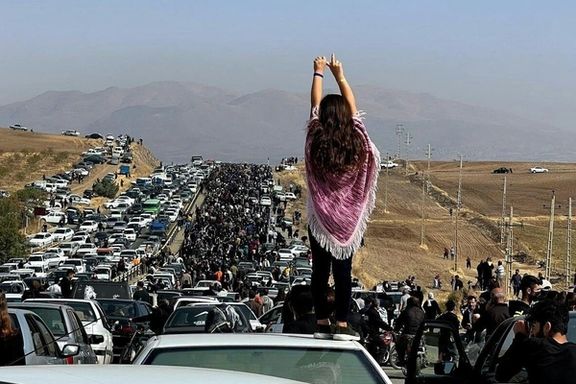
Former government spokesman Ali Rabiei has warned that there might be "bloody confrontations" ahead as Iran's nationwide uprising rages on for seven weeks.
Rabiei, a long-time member of the Islamic Republic's intelligence community, wrote in a commentary in the reformist Etemad newspaper that some officials and political groups have marginalized "moderates" to facilitate Iran's destruction by those who keep creating fault-lines in the Iranian society.
Already, security forces have killed more than 300 protesters according to human rights monitoring groups, among than more than 40 children.
He argued that some "are exerting maximum pressure to disrupt the efforts of mediators between the government and the protesters. He said that there has been a security approach in the government aimed at systematically weakening the civil society and influential reference groups.
Rabiei was obviously referring to Iranian hardliners who attempt to get rid of all their political rivals and to monopolize power within Iran's ultraconservatives. Rabiei pointed out: "The political participation of various political groups and parties was extremely limited in two consecutive elections. As a result, the ballot box lost its function of creating mediators who played as go-betweens among various generations and their demands."
The former government spokesman, an experienced operator, was referring to the elimination of so-called ‘reformists’ from centers of power in the last two years. Since late 1990s the ‘reformists’ were urging rational and relatively moderate policies by the regime, but were gradually pushed aside by hardliners enjoying the support of the Revolutionary Guard and Supreme Leader Ali Khamenei.
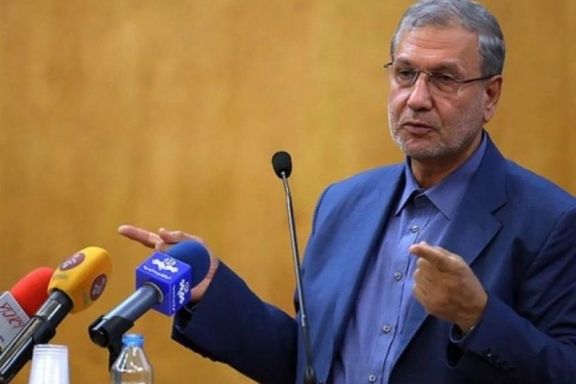
Rabiei said that the government refused to pay attention to warnings about the Iranian society's vulnerabilities. He warned that throughout the course of history the absence of mediation between the government and the people has brought the two face to face in bloody loggerheads. He warned that without the moderates, there will be no way for even minimal understanding between the government and the masses.
Meanwhile, he also pointed out the dangerous situation resulting from the weakening of national media. In series of tweets, reformist commentator Ahmad Zeidabadi also noted the perils of Iranian media losing their role as the point of reference for the nation.
Zeidabadi wrote that Iranian officials have failed to understand that they have lost the "media war" to foreign-based Persian speaking media. He pointed out that Iranians find the state television reliable only when it tells the time. Otherwise, the state TV has said so many lies that its viewers cannot believe anything broadcast as news. Viewers will not believe the state TV even when it makes a point that is absolutely true, said Zeidabadi.
Meanwhile, understanding the need to change this situation, some Iranian officials speak of need for a change. Majles Speaker Mohammad Bagher Ghalibaf has said: "I hope security will be completely restored in the country soon, so that legitimate and necessary changes would begin to establish a new kind of governance in economic, social and political areas within the frameworks of the Islamic Republic." Social media users reminded him that only two weeks agio, he publicly and officially called for harsher measures against the protesters. They told him that the government should first change its behavior if it wants to reduce tensions.
This comes while Rahim Mohammadi, the representative of the Iranian Sociological Association has acknowledged in a speech at the Tehran Bar Association that the current protest ‘movement’ has become a household word and future change in governance will be unavoidable..
He said "The right to protest, non-violent struggle, and holding dialogue for public good" are some of the essential parts of this movement. He said its other characteristic is that Iranians are talking about their common dreams. Mohammadi added that old forms of government in Iran are outdated, and Iranians are currently looking for a new form of government based on their rights, their freedom, and their aspirations.
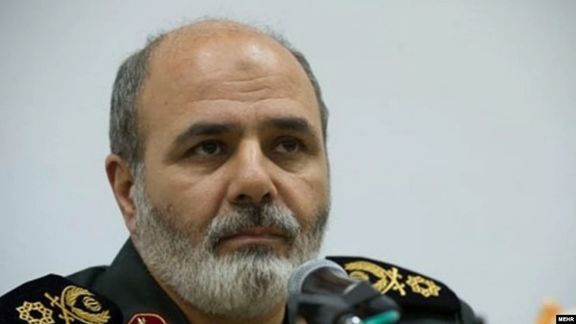
A top aide to Supreme Leader Ali Khamenei says the Islamic Republic’s establishment is still undefeated but it has received a blow from the protest movement.
Rasool Sanaei-Rad said during a TV program Saturday that “We must accept the differences and open a space for dialogue through free-thinking platforms… but in the first step, our actions must be aimed at suppressing riots.”
He divided the opposition into “domestic” and “foreign” saying the establishment must have self-restraint dealing with those opponents not serving foreign interests.
He also added that the Islamic Republic is “flexible” against the domestic opposition because they are like “our children”.
“Today, we are dealing with a multi-dimensional and multi-layered social phenomenon... we have overlooked excessive use of cyberspace by young people and teenagers during the COVID pandemic” claimed the deputy of the Political Ideological Bureau of the Commander-in-Chief.
The Political Ideology Bureau is part of Khamenei's extensive office, and responsible for “policy-making, coordination, inspection and supervision of the affairs and duties of the representative of the Supreme Leader in the Iranian Armed Forces.” The head of the Bureau, appointed by the Supreme Leader, is currently a mid-ranking cleric, Ali Saeedi, Khamenei's former representative in the Islamic Revolution Guards Corps.
Sanaei-Rad’s claim about “self-restraint and flexibility” is made while the Oslo-based Iran Human Rights Organization has reported that at least 304 people, including 41 children and 24 women, have been killed by government forces during the last 50 days of protests.